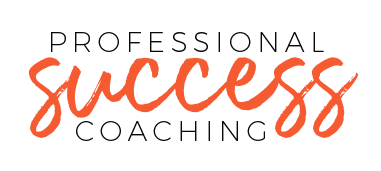Slowing Down to be More Productive
Host Sheila Boysen-Rotelli is here to talk about how to create and implement a career plan that will bring you true happiness in life. It may seem like a giant monster but with Sheila’s help, you can tackle it one step at a time!
Episode Highlights:
Being more productive does not necessarily mean being busier or doing more work
After working for a plethora of organizations across various industries, Sheila has found that productivity has little to do with speed
People have become conditioned to remain in a constant state of impatience
Stress and overwhelm from the outside are signs that life is moving too fast and can slow productivity
The missing minute is so important because it contributes to stress and the feeling of inefficiency
Operating on the razor’s edge, that being the constant movement throughout the day, can cut us
It’s important to find breathing room in your schedule and can contribute to that missing minute
As with anything, having a schedule and being prepared can help with the stresses of life
Sheila believes that we should only schedule 80% of our day and leave the other 20% blank
Schedule time in your calendar for your breathing room in which nothing is planned
Give yourself room to breathe by adding buffer time between each task and appointment
Think about a time when you were rushing to get something done and how that rush affected the quality of your work
Force yourself to take extra time on your tasks that you usually find yourself rushing on
A cool-down period is just the time you take to review your work after finishing a task
Use the importance of a task to determine how long you should take for your cool-down period
Avoid mistakes by taking some time to go over your work
Ask your superiors and coworkers for the time that you need; they will probably give it to you
Describe the results that you are trying to get out loud
Centers your thinking
Gives the other person the mindset and patience to wait through any extra time that you need to take
Most people respond to others too quickly, whether it be an email, text message, or in-person
Look at the spectrum of daily disruptions and determine where you schedule falls on this spectrum
People with no interruptions throughout their day usually take all day to answer a message
Those who have a lot of disruptions in their day are rushed to respond quickly
Collaboration and negotiation about reasonable deadlines will help everyone involved to stress less
“When is the latest this needs to be done?”
“Do you need the whole project or part of it by that date?”
“How perfect do you want this to be when I submit it to you on that date?”
“Do you want to move the delivery date of this project?” - potential scheduling conflicts
3 Key Points:
As humans, we have become conditioned to always be in the mindset that we need to be doing something and it can be overwhelming.
The missing minute is that minute that should exist between every task and appointment that we have throughout the day.
The length of a cool-down period, or spending time for review, should be determined by the importance of the task. This allows you to be more confident in the work that you turn in and also helps to avoid mistakes..
Tweetable Quote
“Often, slow is faster than fast.” - Sheila Boysen-Rotelli
“When we take control of our day by just slowing down a little bit...We can improve the quality of our work. We can feel calmer.” - Sheila Boysen-Rotelli
“Now, dress me slowly because I’m in a hurry.” - Napoleon Bonaparte
“Every time you catch yourself in a rushed mistake, just stop yourself and replay the moment in your mind.” - Sheila Boysen-Rotelli
“True productivity is about one meaningful change at a time.” - Sheila Boysen-Rotelli
Resources Mentioned:
Claim your free six-step job search success workbook here
Contact Sheila at sheila@professionalsuccesscoaching.com

